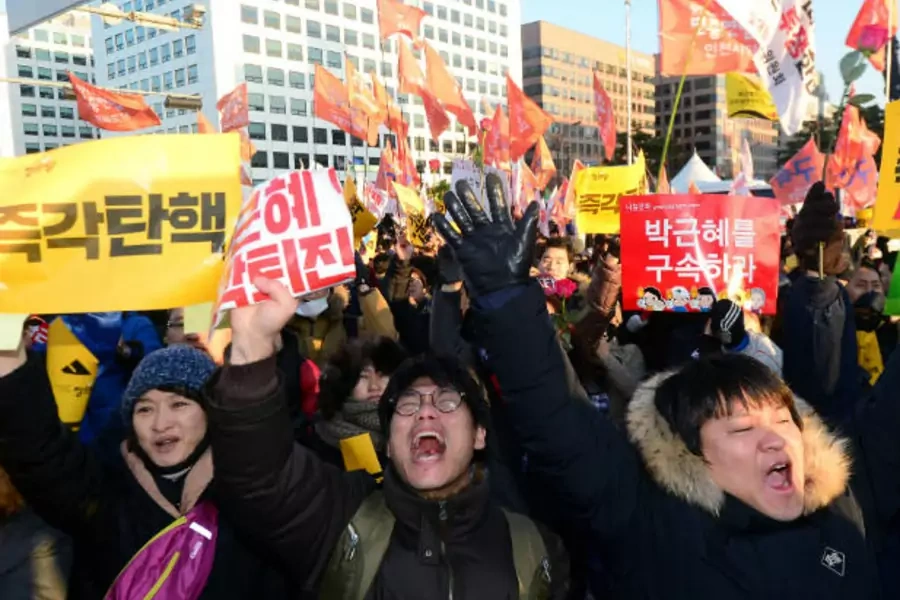Women Around the World: This Week

More on:
Welcome to “Women Around the World: This Week,” a series that highlights noteworthy news related to women and U.S. foreign policy. This week’s post, covering from December 3 to December 10, was compiled with support from Becky Allen, Anne Connell, and Lauren Hoffman.
President of South Korea impeached
South Korea’s National Assembly voted today to impeach President Park Geun-hye due to a corruption probe involving her chief confidante and other aides. The scandal caused weeks of mass protests, with an estimated 1.7 million people packing downtown Seoul calling for the president’s removal from office. The assembly heeded the public’s calls today in a 234-56 vote, well surpassing the two-thirds majority of the 300-member legislature needed for impeachment. The Constitutional Court will now deliberate on the motion, a process that could take up to 180 days, with Prime Minister Hwang Kyo-ahn serving as acting president in the interim. Park’s impeachment not only has implications for political and economic stability in Asia, but also will affect the future of female political leadership in the region: experts suggest that Park’s impeachment may influence public opinion about women leaders and raise the level of scrutiny of female candidates running for office. Asia already lags behind other regions in terms of women’s political leadership, and most women in the region who have risen to high posts—including Park—come from familial political dynasties. In South Korea, women presently comprise only 17 percent of the National Assembly that voted to oust Park, ranking it 111th out of 193 countries tracked by the Inter-Parliamentary Union.
Merkel proposes a ban on face-covering veils
At the annual conference of Germany’s Christian Democratic Union party on Tuesday, Chancellor Angela Merkel called for a national ban on full face-covering veils in schools and other state buildings, suggesting that “veils hinder the face-to-face interactions” that help new communities integrate. Accepting her party’s nomination for a fourth term as Germany’s head of government, she said that “The full veil is not appropriate here; it should be forbidden wherever legally possible.” Merkel’s new stance on a niqab and burqa ban is in part an attempt to deflect challenges posed by far-right anti-immigrant parties that have gained popularity since her 2015 open border policy welcomed 1 million asylum-seekers to Germany. If Germany were to adopt a ban on veils, it would join a number of EU countries—including Belgium, France, Italy, Spain, and Switzerland—that have national or local bans. In 2014, the French ban on the niqab was upheld by the European Court of Human Rights.
Nigeria combats child marriage
Nigeria became the sixteenth country to join the African Union (AU) campaign to end child marriage, a practice that endangers girls’ health, education, and economic opportunities and perpetuates poverty and instability in communities. Launched in 2014 in partnership with UNICEF and UNFPA, the AU campaign promotes collaboration between African governments and multilateral groups to develop strategies to combat child marriage and uphold girls’ human rights. Seventeen of the twenty countries with the highest rates of child marriage in the world are in Africa, including Nigeria, where 43 percent of girls are married before the age of eighteen. In a speech this week, Nigerian President Muhammadu Buhari linked the practice of child marriage to other forms of violence against women and girls, announcing new plans to address high rates of interpersonal violence and eliminate human trafficking. Recognizing that many traffickers exploit women’s search for better economic opportunities, Buhari’s government has adopted a new economic initiative to reduce unemployment and strengthen economic empowerment programs for women.
More on:
 Online Store
Online Store